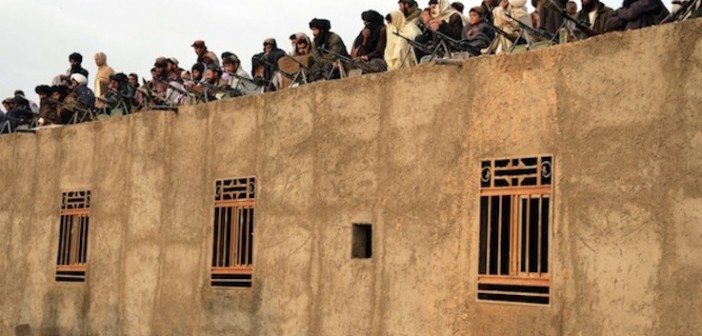The new faction, reportedly filled with influential Taliban, is believed to be the first formal split inside the movement since it emerged in the mid-1990s and seized power in 1996. Rasool, the faction’s leader, served as governor of Farah and Nimroz provinces under the Taliban regime until it was toppled by the U.S.-led intervention following the Sept. 11, 2001, attacks. He is believed to have been close to Omar.
His group has a tough task ahead. Mansoor is widely thought to have strengthened his hold on the movement with recent military victories, in particular the 15-day seizure of the northeastern city of Kunduz, the first major urban area to fall to the insurgents since 2001.
On Sunday, Rasool’s group sought to portray itself as more open-minded than the core leadership. In the BBC interview, Niazi, a former Taliban governor, said that Mansoor had killed Omar, although he did not offer any evidence. He also called for an end to infighting among all Afghans. And he said the group did not approve of the use of suicide bombings and other types of attacks on Afghan military and civilian officials.
“From now on, we Afghans are not in favor of revenge seeking,” Niazi said.
He added that the recent Taliban attacks in Kabul and the takeover of Kunduz in late September had been “launched for Mansoor’s personal power.”
“We announce to all Afghans that it is enough and to put aside Afghan fratricide,” Niazi said. “Let us find out who the source of the war in Afghanistan is, and where it comes from and how to prevent it.”
At the same time, Niazi echoed the Taliban’s core leadership when it came to peace talks: No discussions should occur unless all U.S. and foreign troops depart the country.
In the past three days, he said, the breakaway faction had held several emergency meetings in the western part of the country and were planning to hold more gatherings in the northern areas to gain more support and recruits.
Sayed Salahuddin contributed to this report.

